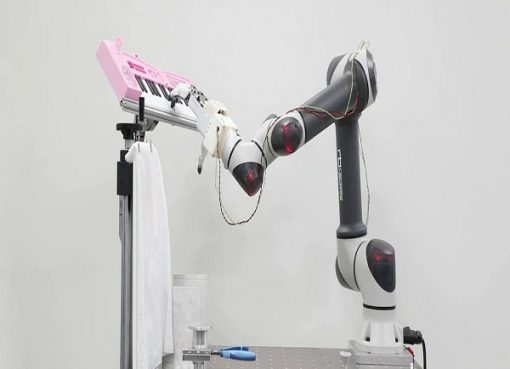TV presenter Dr Shini Somara talks to Maryam Adeleke, a structural engineer who joined the building engineering team at Arup as a graduate and has been there for the last six years.
Maryam Adeleke: No one in my family is an engineer, so I wasn’t influenced by them. In fact, I didn’t even know that such a career existed. Art and maths had always been my favourite subjects. In my Year 10 maths class, I would often finish my work quickly, and on one occasion I decided to get out my art book and start drawing. My maths teacher saw me and told me to put my art book away and then also said “you should look into architecture”. I had never heard of architecture. After some work experience at an architectural firm, I realised that I love the built environment, but I wanted the work to be more technical in terms of maths and physics. That is how I discovered engineering.

SS: What has it been like being a woman of ethnic minority?
MA: It’s been very difficult. I had to get used to being the only one in the room. As a graduate, I found this uncomfortable; felt insecure, out of place and often went into self-doubt. Today, I have a lot of pride being a black female engineer. Now, when I strip back all the hardship of being of ethnic minority and just do my job, I realise I do really like what I do. I wish that extra burden wasn’t there. If it wasn’t, who knows how much more I’d be able to flourish.
SS: What is the best piece of advice you have ever received professionally?
MA: When I first joined our London office, I was quite overwhelmed with moving back to the big city and its competitiveness. Several senior women and I discussed the struggles of being a woman in a very male-dominated profession and I shared my fear of being mediocre. The best advice I was given in response to this was that “there is nothing wrong with being mediocre”. This advice was important to me because I think we live in a society where social media urges us to have our names in lights; everyone is aiming for excellence. Whilst that is an acceptable ambition, I think it can get unhealthy when you put too much pressure on yourself.
‘The best advice I was given is that there is nothing wrong with being mediocre.’ Maryam Adeleke
SS: What has been your most humbling experience?
MA: I was born and raised in a council estate until I left for university. Some people I grew up with made it to Russell Group universities and we would often say “we made it out of the ‘endz’”. In other words, we studied, got high-flying jobs and moved out to somewhere fancy. But I actually moved back to my council estate, and that was a humbling experience, because growing up, I had always desired to escape from where I had come from.
SS: What would you say is your superpower?
MA: I would say that my superpower is that I am very empathic, and I am good at connecting with people. I can read people very well, which helps to defuse tense situations, perhaps when two engineers are butting heads. I think people find it easy to communicate with me because I am emotionally in tune, which I think is massively needed in this industry.
SS: What are your perspectives on Equality, Diversity and Inclusion (ED&I)?
MA: You can always add more diversity to a company, but hired minorities need to feel that they belong. When I first entered my workplace, it felt like I was hired to fill a quota. But then we started to have more company conversations about how to make minorities feel more equal and included. On a personal level, these conversations have given me the confidence to be more outspoken.
Generally, things are progressing with ED&I. Everyone, including myself, needs to keep the conversations going and support those who are joining the profession.
Institutions are talking more about ED&I too. It’s a very complex and multi-layered topic with many unknowns. For example, people of BAME origin make up 25 per cent of engineering graduates but only 9 per cent of the profession. We don’t yet fully understand why. Yet the fact this statistic exists is encouraging because we can start to identify issues and tackle them. Change is also happening because I think people are gradually starting to acknowledge their privilege and are using this knowledge to help.
SS: How important have role models and mentors been for your career?
MA: Super important. Ideally, I would have loved to have been mentored by someone who has overcome the same experiences as me, but I’ve realised that on a human level, we can always learn from similar struggles, even though they’re not identical.
Source: E&T










